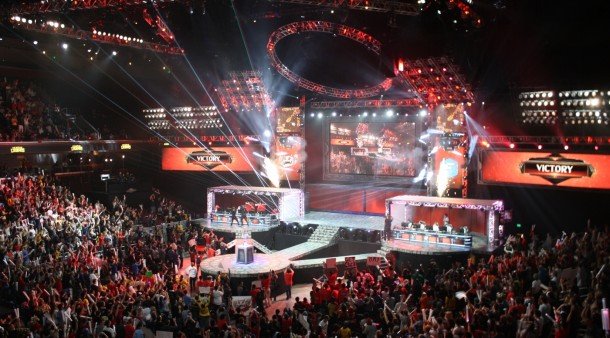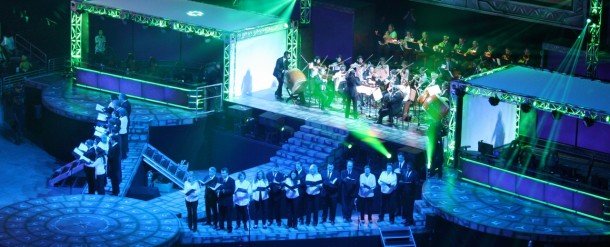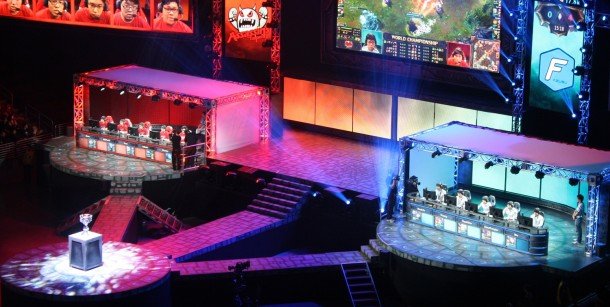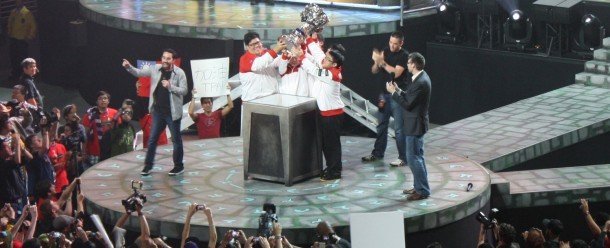Five lessons from the best League of Legends team in the world

The Taipei Assassins schooled Azubu Frost in the world championships on Saturday while more than a million people watched via the livestream and TV in Korea and China. They entered the tournament as a relative unknown, catching their opponents off guard and quickly proving they had the skills and flexibility to tackle every opponent sent their way. Their finals performance was a master class in how to win League of Legends that we can all learn something from.
1. Be aggressive early
I mentioned this a lot in my recap of the earlier matches , but the teams that did best in the tournament had one thing in common: they play aggressive. It's a common philosophy in the Asian regions that's starting to pick up steam in North America and Europe. TPA was one of the most aggressive teams throughout the entire tournament. They crushed Moscow Five, a team famous for their aggressive playstyle, by being even more aggressive and keeping constant pressure on them.
Of course, early aggression is a risky strategy—for players like you or me, it's just as likely to give the other team an advantage when I make a stupid tower-dive and give them a free kill. TPA played aggressive, but were always smart about it—even when I thought they weren't.
2. It's never a bad time to gank
Such as the first game of the world finals, when TPA's Olaf got first blood at three minutes and roamed like a demonic force of destruction, tower-diving in 1v2 situations to get kills. It was incredible to watch. At one point I even shouted out, "Oh no! Way too greedy!" when I thought for sure he'd finally bitten off more than he could chew. And then he promptly shoved those words in my face by sending champions sitting under their own tower to the graveyard like a honey badger.
The most impressive part wasn't that TPA found the right times to gank their opponents—the best pros can find good windows of opportunity in any match. The real impressive part was that they found so darn many of them! They ganked so often yet always seemed to do it at the right time. This was my biggest take-away: there are more opportunities to take advantage of than I'm seeing right now.

3. Control the map by winning your lane
But of course, dominating the map and applying pressure on the lanes is what helps TPA create more of those opportunities than most teams see. Winning your lane gives you freedom. Freedom to do crazy stuff like throw all of your players into the jungle and gobble up stragglers that are unfortunate enough to run through.
At game three, the two teams were tied in the series (1-1) and TPA focused entirely on winning their lanes, avoiding any kills until nine minutes in. Instead, they moved champions around for more favorable match ups to make sure they got more minion kills and pushed towers. By ten minutes in, TPA was winning every single one of their lanes, pushing harder and getting more gold than their lane rivals across the board.
Keep up to date with the most important stories and the best deals, as picked by the PC Gamer team.
Winning your lanes doesn't always secure victory, though. All it takes is one bad teamfight to undo all the progress you've made. But it does always demoralize and starve your opponents, tempting, and sometimes forcing, them to make desperate choices that you can exploit.
Sometimes you get lucky and it snowballs into perfect scenarios like the jungle mass-murders TPA milked at the 18 minute mark mentioned above. And then if you're really lucky, that'll demoralize your opponents enough to force a surrender, like AZF gave up only three minutes afterwards.
4. Don't be aggressive early
Is that a typo? Lessons one and four can't both be true, can they? Why am I lying to you? TPA's biggest strength was that they didn't always keep to their own strategy. You need to adapt your game plan to account for the strengths and weaknesses of each individual opponent you face. In games two and three of the finals, TPA took a quick lead but then switched into a super conservative mode. It was uncharacteristic of their typical hyper-aggressive style that they'd shown against other teams in the tournament.
They became content with simply winning their lanes and not forcing any big fights until their carries were fed enough that they would have guaranteed success. TPA learned from game one, which AZF made a huge comeback during to win, that their opponent's biggest strength is their coordination in team fights. So instead of forcing those early, TPA stalled and focused on keeping AZF's teammates separated to create smaller 2v2 and 3v2 fights simultaneously, with a little help from Teleport and Shen's ultimate.
The tactic was masterfully executed, and seemingly developed on the fly between games. It was a new twist on their strategy: the multi-gank. They all initiated on their opponents at the same time on different locations around the map, ensuring that no one on AZF could come to the aid of their teammates. Their segregated killing spree gave them an ace and paved the road to victory.

5. Recruit the best AP mid player in the world
Okay, this one's probably a bit harder to make happen for your team overnight, but it has to be stated. Toyz, TPA's AP mid, should be classified as a League of Legends demigod now. He's just way too good—it's not even fair.
Toyz had the highest gold-per-minute averages coupled with an insane KDA (ratio of kills and assists to deaths) of 13.3. He almost avoided death entirely during the whole second match of the finals. He outfarmed RapidStar in all four games in the finals, making one of the best AP mids in the world look completely ineffective in his lane.
There were a lot of great players in this tournament and on this team, but Toyz is just on a different level. He always wins his lane, which frees his jungler to assist his other teammates, and gives him the freedom to roam and help set up kills.
Oh, and if you do manage to get the best AP mid player in the world, get him or her to play Orianna if you can—that robot lady is out of control!

Josh Augustine spends more time playing MMOs and MOBAs than most people spend sleeping. He's written about them for PC Gamer as an intern, editor, and freelancer. He's currently a game designer at Sony Online Entertainment and would love to talk with you on Twitter .

